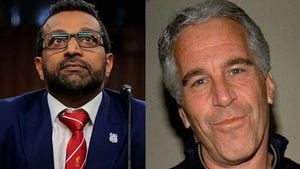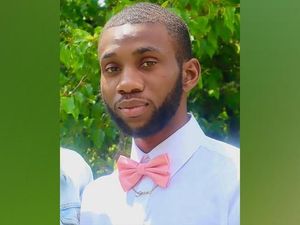On Thursday, July 31, 2025, El Salvador's Legislative Assembly approved sweeping constitutional reforms that will allow President Nayib Bukele to run for reelection indefinitely, extend presidential terms from five to six years, and eliminate the runoff voting system. The vote passed overwhelmingly, with 57 lawmakers in favor and only three opposed, reflecting the dominant position of Bukele's New Ideas party and its allies, who control 57 of the 60 seats in the Assembly.
The constitutional amendments were introduced by Ana Figueroa, a lawmaker from Bukele's New Ideas party, who argued that indefinite reelection had long been permitted for almost all elected positions in El Salvador except the presidency. "Historically, reelection has been allowed in El Salvador for almost all elected positions, without prohibitions or particular conditions," Figueroa said. "The only exception so far has been the presidency." With these changes, that exception has been removed.
In addition to allowing indefinite presidential reelection, the reforms extend the presidential term from five to six years and eliminate the second round of presidential elections, where the top two candidates face off if no one wins an outright majority in the first round. The reforms also synchronize presidential, legislative, and municipal elections by moving the next general election to 2027, two years earlier than previously scheduled. This adjustment means Bukele's current term, originally set to end on June 1, 2029, will now conclude on June 1, 2027, allowing him to seek reelection for a longer term sooner.
Figueroa emphasized the practical benefits of the reforms, noting that eliminating runoff elections would save the government approximately $50 million per election cycle, funds that could be redirected to public services such as hospitals and schools. She added that these changes would "foster stability, reduce costs, and increase legal certainty in order to attract investment." She further asserted that "Salvadorans can now decide how long to support their president," framing the reforms as an expansion of democratic choice.
President Nayib Bukele, who first took office in 2019 and was reelected in 2024 with an overwhelming 85 percent of the vote despite a constitutional ban on consecutive terms, has consolidated power steadily since his initial election. His party's control over the Legislative Assembly and the Supreme Court—where justices loyal to Bukele have replaced previous magistrates—has cleared the path for his political dominance. Bukele once famously described himself as "the world's coolest dictator," a moniker that now seems less ironic as his grip tightens.
Bukele's popularity at home largely stems from his aggressive campaign against the country's powerful street gangs, which has dramatically reduced homicide rates to historic lows. His administration declared a state of exception that suspended certain constitutional rights, enabling mass arrests of tens of thousands of people suspected of gang involvement. Estimates suggest that roughly 88,000 individuals have been detained under this regime, with human rights groups reporting widespread abuses, including arbitrary arrests and more than 400 deaths in custody.
Despite these successes in security, Bukele's government has faced mounting international criticism for its authoritarian tendencies and repression of dissent. In recent months, dozens of journalists, opposition leaders, and human rights activists have fled El Salvador, citing harassment and threats. Notably, in May and June 2025, the administration detained prominent human rights defenders, including lawyer Ruth Lopez, who had been vocal critics of government corruption and abuses. Amnesty International and other organizations have condemned the "gradual replacement of gang violence with state violence."
Human rights advocates warn that the constitutional reforms mark a dangerous step toward dictatorship. Marcela Villatoro, a lawmaker from the opposition Nationalist Republican Alliance (Arena) party and one of only three assembly members to vote against the changes, declared during the parliamentary session, "Today, democracy has died in El Salvador." She cautioned that indefinite reelection leads to the accumulation of power, corruption, clientelism, and nepotism, all of which stifle political participation and weaken democratic institutions.
Ernesto Castro, president of the Legislative Assembly and a member of Bukele's New Ideas party, celebrated the reforms, thanking fellow deputies for "making history." Suecy Callejas, the Assembly's vice president and also from New Ideas, echoed this sentiment, stating, "Power has returned to the only place that it truly belongs ... to the Salvadoran people."
The constitutional overhaul was fast-tracked, passed less than an hour after introduction without debate or amendments, during a legislative session held just before the country's week-long vacation period—an aspect that critics argue was designed to minimize public scrutiny. Noah Bullock, executive director of the rights group Cristosal, condemned the timing and process: "The day before vacation, without debate, without informing the public, in a single legislative vote, they changed the political system to allow the president to perpetuate himself in power indefinitely and we continue to follow the well-travelled path of autocrats." Miguel Montenegro of the nongovernmental Human Rights Commission added that the reforms "completely dismantle what little democracy remained."
El Salvador's international image remains mixed amid these political developments. The country has also been at the forefront of cryptocurrency adoption, notably with its controversial Bitcoin policies. Recent reports from the International Monetary Fund (IMF) in July 2025 stated that El Salvador had not purchased any Bitcoin since signing a $1.4 billion loan deal in December 2024, contradicting claims from El Salvador’s official Bitcoin Office, which asserts that the country continues to buy one Bitcoin per day. As of late July 2025, El Salvador holds over 6,255 Bitcoins, having increased its reserves by 31 BTC in the past month. Furthermore, El Salvador recently signed a memorandum of understanding with Bolivia's top bank to strengthen Bolivia's crypto infrastructure and policies, signaling ongoing regional ambitions in the digital currency space.
Domestically, Bukele's approval ratings remain high. Surveys by the University of El Salvador’s Public Opinion Laboratory indicate that over 78 percent of respondents approved of Bukele's performance during the first year of his second term. Another poll by Iudop-UCA gave him an 8.15 out of 10 rating for his sixth year in office. For many Salvadorans, the promise of safety and stability appears to outweigh concerns about democratic erosion.
However, as El Salvador moves toward indefinite presidential reelection under Bukele, the country's democratic institutions face unprecedented challenges. The removal of term limits and the consolidation of power raise critical questions about the future of democracy in the Central American nation, where the balance between security and civil liberties remains deeply contested.





